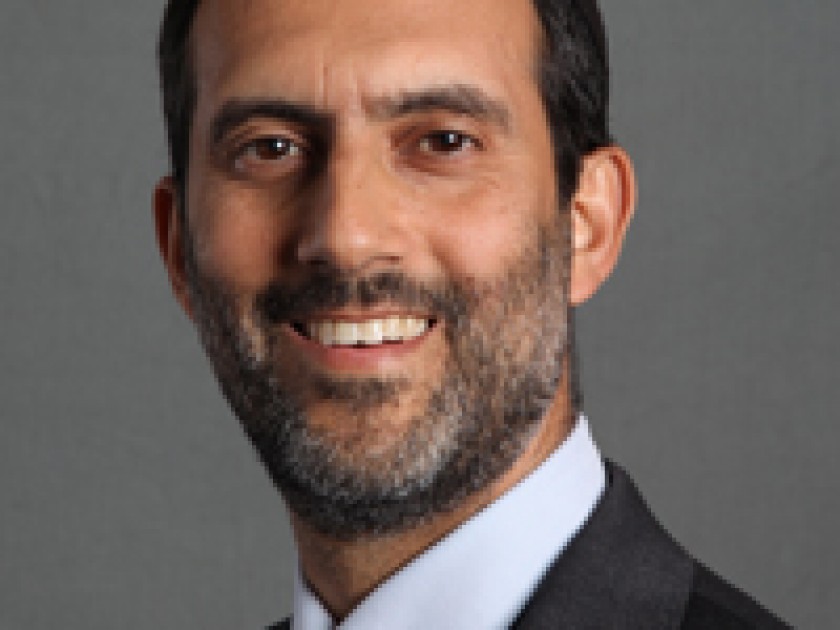
Celebrate Jewish Book Month with #30days30authors! JBC invited an author to share thoughts on #JewLit for each day of Jewish Book Month. Watch, read, enjoy, and discover!
Today, Rabbi David Jaffe, the National Jewish Book Award-winning author of Changing the World from the Inside Out: A Jewish Approach to Personal and Social Change, on learning to write and saying thank you.
Towards the end of a meeting discussing the manuscript for my first book, Changing the World from the Inside Out, my editor raised her eyes from the bundle of pages and said casually, “You are a good writer” and then returned her gaze to continue reading. I’m not sure how she intended it, but this short parenthetical comment landed for me in the way I imagine a gymnast might feel bowing her head to receive an Olympic medal. It signified achievement.
My first instinct was to thank Mr. Maloney. Neil Maloney was my eleventh grade English teacher. By the time I had him he was a veteran of over two decades of teaching and reacted to our teen angst with an amused caring that made us feel safe and comfortable talking with him about things far afield from English literature. He also taught me how to write.
I wasn’t a bad writer coming into his class, but I had a long way to go. In my mind writing was a formulaic exercise not so different from algebraic equations with five paragraph essays, topic sentences, evidence and conclusions. Mr. Maloney taught me that I could say something of consequence with my writing and I could say it well. He also taught me that great literature could enter my soul and change me. That year I fell in love with Shakespeare, particularly Othello. I was so fascinated with the evil Iago that his words become my senior yearbook quote:
‘Tis in ourselves that we are thus or thus; Our bodies are our gardens, to the which our wills are gardeners.-Othello Act I, Scene III
I shook with awe upon reading Shakespeare, Steinbeck and Faulkner’s beautifully constructed sentences, and was hooked. I wanted to know how to write like that. I learned from Mr. Maloney that there were no shortcuts. I rewrote a paper about Tom Joad and Christological imagery in The Grapes of Wrath at least four times. The silver lining of all these rewrites were the hours spent in Mr. Maloney’s small office talking writing, literature and teen life. I even began to cherish the artistry that came with rewriting a sentence for the fourth or fifth time. Crafting a great sentence echoed Michaelangelo’s description of sculpture: Just as the sculptor reveals a form that exists within the stone, so the writer reveals an idea or emotion by choosing, cutting and combining words. It is in the cutting and rewriting that the magic happens.
This training served me well once I got to college. I quickly realized that most of my friends didn’t have a Mr. Maloney in their high school English departments and they suffered for it freshman year. After college I briefly experimented with a life of writing, with short lived ventures into film and journalism. I turned my attention elsewhere for many years before getting this book contract and reengaging with this old love.
I was so excited to tell Mr. Maloney about my success and express deep gratitude for his major contribution to my life and happiness. It only took one inquiry on Facebook until I found out I was too late. Mr. Maloney had passed away a decade ago so I never got to thank him. This piece is a gesture of gratitude to this wonderful, clever, patient, rigorous and loving man. Who taught you how to write or to love great literature? Don’t wait – track them down today and tell them, “Thank you.”
Rabbi David Jaffe is the author of Changing the World from the Inside Out, winner of the 2016 National Jewish Book Award for Contemporary Jewish Life. In addition to being a rabbi and a writer, he is also a social worker. He’s organized homeless men in San Francisco, built refugee camps in Eastern Congo and reconnected Boston’s suburban Jewish community to its urban roots through social justice partnerships. He is a nationally recognized practitioner and teacher of Mussar — the school of applied Jewish spirituality and ethics.He blogs at rabbidavidjaffe.com.